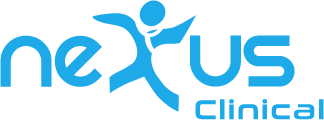
Unified vs. Integrated EHR-PM Solution
- Written by Kiran Agate
Unified vs. Integrated EHR-PM Solution
- Written by Kiran Agate

Practice Management (PM) systems help practices in managing practice operations and claim processing as primary objectives. They have been in existence long before EHRs.
However, EHR adoption caught up due to a meaningful use program designed by the Office of the National Coordinator for Health (ONC). This opened up many opportunities for existing PM vendors as well as new entrants in the healthcare IT space. While some PM vendors went ahead with their own EHRs, some others wanted to keep doing what they knew best and bring in suitable EHR solutions as partners so their customers could choose the EHR that was suitable for their needs. A few PM companies had their own EHRs as well as a partner EHR solution as alternatives for those customers who wanted their specialized requirements to be addressed.
So today you need to make a choice: whether to go with a unified system by a single vendor or use an integrated system where PM and EHRs are developed by two different partnering companies.
There are few points that a decision maker always has in mind before making choice of health care system for their setup:
1. I already have a PM and it works well for me?
Many healthcare providers have already been using PM systems for many years but when they want to adapt an EHR they may not want to go through learning experience on the PM system as well.
2. Is a suitable EHR available from my PM vendor?
While some vendors have both PM and EHR in their offering, not all PM vendors have EHR as their solution. Even if they offer a solution it may not be always suitable for the needs of healthcare providers in the practice.
3. When I choose an EHR-PM solution will it be permanent?
EHR product space is still maturing and it has a lot to do with government regulations and ever evolving requirements of the healthcare providers and there is a lot of variability in the way each healthcare setup operates and their needs for technology assistance. In contrast to this PM solutions are in mature space, their regulations do not change frequently, the basic processes are already set. This has resulted in a larger replacement market for EHRs while PM solutions are comparatively stable. So whether you chose unified or integrated solutions it depends on how well it improves your practice operations.
4. Do I really need a unified solution?
Unified EHR-PM solutions are usually used by two different sets of users. Physicians, PA/NPs and clinical staff use EHR and while PM is primarily used by front desk and billers this reduces the need of unified EHR-PM in many healthcare setups as long as required information is synchronized between the two solutions.
5. Isn’t managing a single vendor more suitable than managing two?
Yes. There is some convenience for IT person or admin of healthcare practice when they manage single vendor compared to managing two different vendors but considering the primary objectives of choosing these solutions is to have smooth clinical workflow and to manage revenues of the practice, if an ideal solution for a healthcare practice is coming from two different vendors who are partnering to have required synchronization in place then convenience of IT or admin staff is secondary.
All these points do not really say whether one solution is better or another. Answer is: it depends on your needs, relation with existing vendor(s) and cost of solution or cost of change.
As a decision maker you have your hands full and we are ready to help. Nexus Clinical has its primary product Nexus EHR which we strive to make flexible, cost effective and feature rich for clinical workflows of different specialties. If you are looking for a unified solution then we have our own PM solution which gives you simple but efficient and cost effective healthcare platform. However if you are already using any PM solution or if you are looking for any specific features from other PM vendor then we partner with many excellent PM solutions to offer you an integrated solution. So you can choose a solution that suits your needs and budget.






